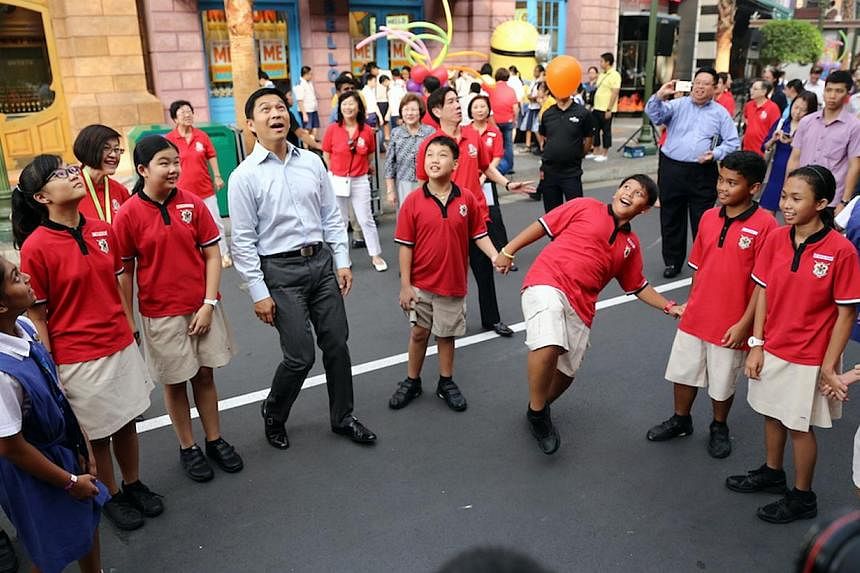SINGAPORE - The space for discourse is evolving and everyone needs to play a part in deciding how it evolves, Manpower Minister Tan Chuan-Jin said on Friday.
"We need to create constructive spaces where people can actually debate and discuss things civilly and constructively, and this is not codespeak for censoring," he said.
"We all have a role to decide how that discourse ought to take place," he added, noting that some conversations get polarised very quickly and a lot of people choose not to speak up "because they get flamed or shouted down".
"I think leaving it to just those who shout others down would mean it would take a certain tone, and in many ways we would also be responsible for allowing it to go that way."
Mr Tan was speaking to the media after a dialogue on leadership at Singapore Management University (SMU). Earlier, he spoke to around 180 SMU students, addressing questions ranging from how to discern which feedback is constructive, to how to manage conflict without people feeling disengaged.
Having more people stating their positions is key to managing the space for discourse, said Mr Tan. "Hopefully over the course of time you do actually have fairly balanced and constructive dialogues, where people can safely air their views and then walk away, perhaps not always having the consensus that we want but at least (having) some common space established."
Turning to a question posed by a student on whether getting good grades is more important than leadership in a competitive world, Mr Tan said it is possible to have both.
"Let's not get away with the idea that it's not important to do as best as you can...do as best as you can and after that focus on developing yourself as a person."
The dialogue was held before the second day of the university's biannual career and internship fair, attended by 88 employers including Google, Foodpanda and 3M.
On being a good leader, Mr Tan also told the students that having people's trust and being sure of personal values are two key components. "If you treat people with respect and you do genuinely care for people, I think they will respond."
Leaders should also create a climate in which people are willing to stand up and try new things, and then be willing to protect them if they fail, he said.
Third year accounting student Adrian Tan, 25, said after the event that the issue of trust resonated with him as the president of the SMU Accounting Society.
"I do sometimes micro-manage...I don't portray myself as someone who trusts my committee members that much, and I realised it's a two way thing, if I don't trust him that much he won't trust me as well," he said.
"In future we need to give autonomy to the people who're managing (jobs) and it will bring out the best overall, and the dynamics will be better as well."
SMU Information Systems Society president Teh Kaiwen, 26, said that leadership in Singapore can be better developed from a young age.
"It may be a culture that is in-built, people dare not speak up or share their thoughts because they're worried it's wrong. It would be good if, from a young age, students are already encouraged to speak up and be able to participate in important decisions."


